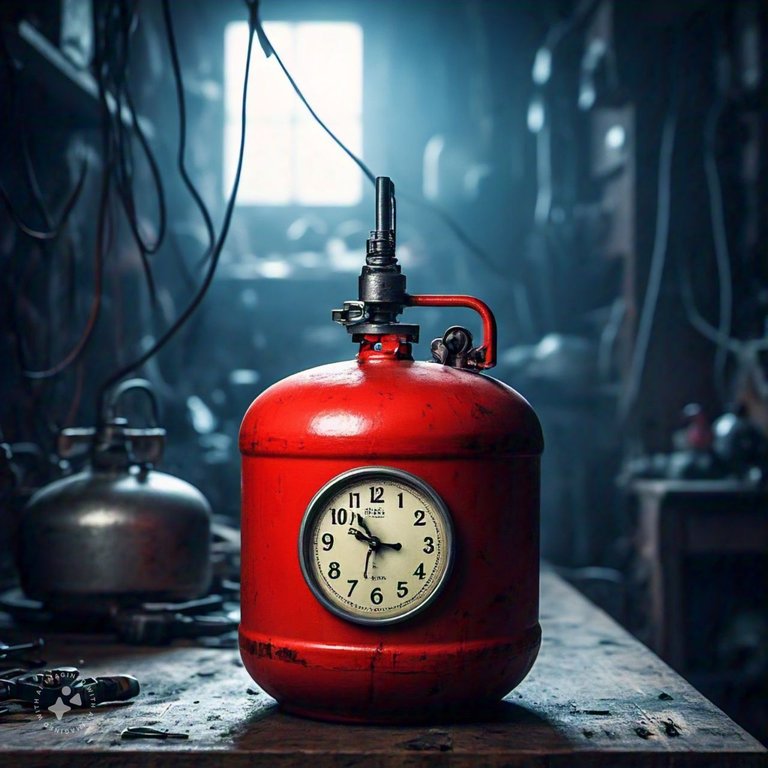There is always going to be something man-made out to get humans and if it isn't road accidents caused by man-made vehicles or a scientifically architectured virus, it could be a ticking time bomb sitting right in your kitchen. With the consistent education of the masses, avoidable hazards that surround cooking gas cylinders (canisters like some people call it) like purchasing of substandard gas cylinders, old valves or worn out regulators have been curbed but what many people do not talk enough about is the expiration date of gas cylinders–irrespective of what they are used for.

With gas cylinders, as the expiration date approaches, the canister becomes a ticking time bomb waiting patiently to explode because the old canisters have been put to use beyond their cut off dates. Now, that is the issue with many man-made items–they all have expiration dates which is why it is very pertinent to duly check for these dates just like we do with our consumables.
Gas cylinders are said to last for 10–15 years after production but that is not the case these days. A friend of mine went shopping for new items because she was moving into a new apartment about two years ago and when I paid her a visit recently, I had to beg her to replace her gas cylinder as soon as possible. The cylinder which was supposedly very new looked like a shadow of itself. All the metals used for its production were rusty and battered. The question would be; does she pour water on the gas? Even if one poured water on their gas cylinders every single day, it wouldn't get as mangled as my friend’s. And as such, the only reasonable explanation would be that she purchased the cylinder from a gray market and by doing this, purchased a substandard product.
There is a very long list of potential hazards when it comes to gas cylinders and some of them include: leaking/ spillage of gas, corrosion of gases, inert reaction of the gases with the canisters, and the most popular of them all–explosions.
For years on end, I was afraid of the gas station close to my house. I watched carefully whenever gas tankers came to replenish the depleting gas. Whenever this happened, so many thoughts ran through my mind but my only source of consolation was the fact that cold water always ran down the body of the receiving canister, thereby helping to reduce the risk of any hazard whatsoever. Also, no random stranger was allowed into the gas station during this period.
As humans, there are a few things we can do and precautions we can take when dealing with gas cylinders in order to prolong our lives and that of the people around us.
Always check for expiration dates on the gas cylinders. Expiration dates are usually written in the "MM-YY" or "YYYY-MM" format. About the manufacture or last inspection date, it can come as a code. The date is coded on the side in alphabets: A,B,C,D and two successive digits. With letter ‘A’ signifying the first quarter of the year and ‘D’ the last quarter. The successive digits are a pointer to an exact month. Hence a symbol like D06 signifies that the cylinder was manufactured or last inspected in the fourth quarter(October, November or December) of the year 2006.
Properly cut off gas flow to a cylinder after use.
Properly inspect cylinders for cracks or leaks before taking them into the home.
Avoid dragging, hitting, sliding or bumping gas cylinders while transporting them and if one cannot transport them alone, ask for help.
One other important precaution that isn't really practiced in many parts of the world is the “periodic hydrostatic testing” of cylinders as required by the Department of Transportation(DOT). This test is done to examine whether or not a cylinder can hold its rated pressure and is carried out every five years.
Prior to use, all gas cylinders are labeled to identify their contents or lack thereof. Gas cylinders with unknown contents should be marked as “unknown”. This is a gentle reminder to avoid filling gas cylinders we are not exactly sure of with any type of gas.
With that, I would like to pose the question “do you know your gas cylinder’s expiration date?”
Thumbnail generated by Meta AI